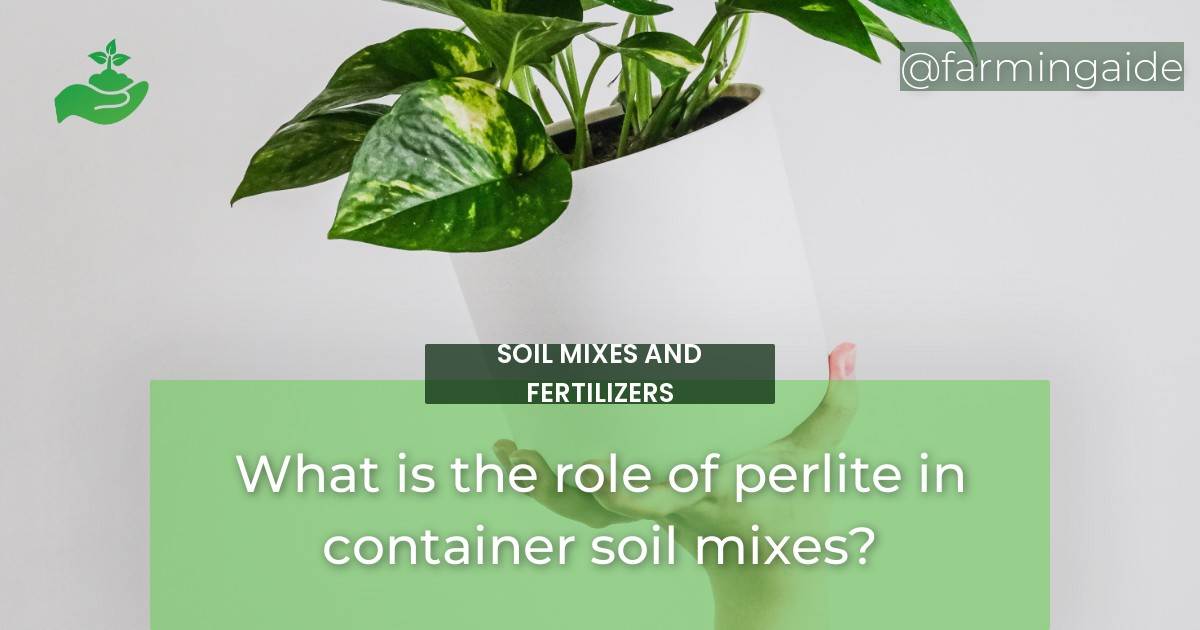Perlite is a naturally occurring volcanic glass that is mined and processed into a lightweight material that is widely used in soil mixes. Perlite is an excellent soil amendment that can improve soil aeration, drainage, and water retention, and reduce soil compaction.
In this article, we will explore the benefits of using perlite in container soil mixes, how perlite works in soil mixes, and how to use perlite in container soil mixes.
Table of Contents
Benefits of Using Perlite in Container Soil Mixes
Improved Soil Aeration
– Perlite helps to increase soil aeration by creating air pockets within the soil mix.
– This allows plant roots to breathe and promotes healthy root growth.
Enhanced Drainage
– Perlite has excellent drainage properties that help to prevent waterlogging in container plants.
– This is particularly important for plants that are sensitive to overwatering.
Provides Adequate Water Retention
– Although perlite drains well, it also has the ability to retain water.
– This helps to keep the soil moist without becoming waterlogged.
Reduces Soil Compaction
– Perlite helps to reduce soil compaction by creating space between soil particles.
– This allows plant roots to grow more easily and improves overall soil structure.
Creates a Lightweight Soil Mix
– Perlite is a lightweight material that helps to reduce the weight of a soil mix.
– This is particularly useful for large containers or when moving containers around.
Allows for Easy Root Growth
– Perlite helps to create a loose and porous soil mix that is ideal for root growth.
– This allows plants to establish themselves more easily and grow to their full potential.
How Perlite Works in Container Soil Mixes
Physical Properties of Perlite
– Perlite is a lightweight, porous material that is made up of small, white, spherical particles.
– It is an excellent insulator and has a high melting point.
Chemical Properties of Perlite
– Perlite is chemically inert and has a neutral pH.
– It is also sterile, which means it is free from pathogens and weed seeds.
Perlite’s Role in Soil Mixes
– Perlite helps to improve soil structure and drainage.
– It also improves soil aeration, which is important for root growth.
ALSO READ
How to Use Perlite in Container Soil Mixes
Optimal Perlite Ratios
– The optimal ratio of perlite in a soil mix will depend on the type of plant and container being used.
– As a general rule, a ratio of 1:1 perlite to soil is a good starting point.
Mixing Perlite with Other Soil Amendments
– Perlite can be mixed with other soil amendments, such as vermiculite or peat moss, to create a customized soil mix.
– It is important to ensure that the soil mix is well-blended to ensure an even distribution of perlite throughout the mix.
Preparing Perlite for Use
– Perlite should be moistened before use to prevent it from being dusty.
– This can be done by spraying the perlite with water before adding it to a soil mix.
Conclusion
Perlite is an excellent soil amendment that can provide many benefits for container plants. It improves soil structure, drainage, and aeration, and helps to prevent soil compaction. Perlite is also lightweight, which makes it ideal for large containers. By understanding how to use perlite in container soil mixes, gardeners and farmers, can improve the health and productivity of their plants. Whether you are growing vegetables, flowers, or herbs, perlite is a valuable addition to any soil mix.


